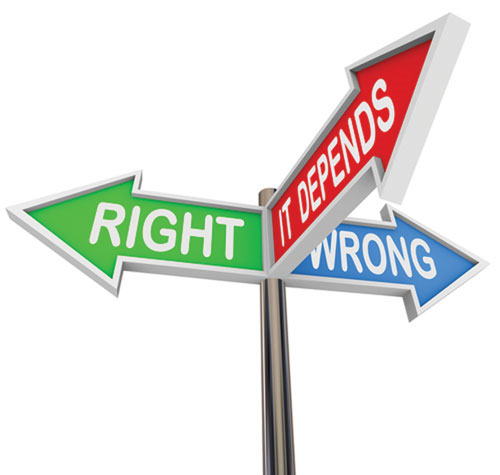New discovery of ability
New research shows that the more people believe in their feelings, the more accurately they predict future events.
>>>Predict the future - The truth or the myth?
This is a report published in the Journal of Consumer Research , conducted by a group of US experts, who believe that people who believe in their feelings can continuously predict future events more accurately than those People who do not believe in their feelings, a discovery is called emotional prophetic effect.
This finding is based on eight studies, in which participants are asked to predict many different results in the future, from the US presidential election, the success of many films, the American Idol competition, fluctuations of the Dow Jones index, the rugby championship winner for universities and even the weather.

Feelings help us access the privileged window of knowledge and information
Regardless of the method used for the study, experts from Columbia and Pittsburgh University (USA) found that people who believe in their feelings predict more accurately than the other group. . The researchers explained this result through the 'privilege window' hypothesis .
Michel Tuan Pham, a professor of Columbia Business School and a member of the research team, explained: When relying on our feelings, we have summarized all the knowledge and information collected in a way. Conscious and unconscious about the world around.'In a sense, the feeling helps us access the privileged window of knowledge and information. That's the window that reasoning, analysis will prevent us from forming it. '
According to the privileged window hypothesis, the researchers note that it appears that test participants need some relevant knowledge to be able to more accurately predict the future. For example, in one study, participants were asked to predict the weather. Although people who believe in their feelings also make better predictions about the weather, they can only do so in their place of residence.
Professor Leonard Lee explained that this is because they 'have no knowledge base to help make predictions' . Another example, only participants who have background knowledge of the current rugby season and believe in their feelings will accurately predict the winner at the National Rugby League for universities. of the US (BCS).
- Shocking discovery about the left brain and right brain
- New discovery of human touch
- New interesting discovery about the ability of bee bees to learn
- New discovery of the ability to control the eel's remote prey
- Unexpected discovery of women giving birth to their second child after age 35
- Will the eyes see through the night?
- Revealing scientific research about the prophetic ability of Vanga
- Discovery of Discovery's
- The incredible abilities of babies
- The shocking discovery of snakes and evolution of the human eye
- Discovery ship will fly again
- Activated the first regeneration ability in flatworms
 'Fine laughs' - Scary and painful torture in ancient times
'Fine laughs' - Scary and painful torture in ancient times The sequence of numbers 142857 of the Egyptian pyramids is known as the strangest number in the world - Why?
The sequence of numbers 142857 of the Egyptian pyramids is known as the strangest number in the world - Why? History of the iron
History of the iron What is alum?
What is alum?